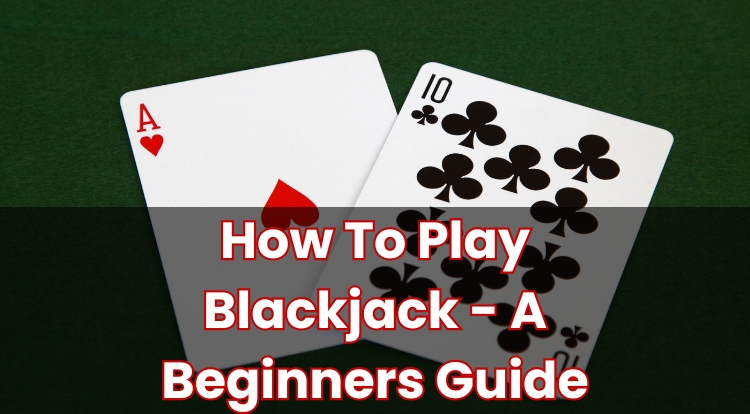Blackjack Aces Value: What Do 2 Aces Mean in the Game?
Blackjack is a popular card game in the UK, played both in land-based casinos and on licensed online platforms. The Ace is a distinctive card because it can have more than one value.
Being dealt two Aces as your first hand can be unexpected. While it may appear interesting, it can also require careful consideration if you are not familiar with how the card values work.
Rules can vary slightly between different versions of the game, and licensed operators are required to provide clear and accurate information about them. With this in mind, here is an overview of what two Aces mean at the blackjack table.
What Is the Value of an Ace in Blackjack?
In blackjack, an ace can count as either 1 or 11. The value is chosen to keep your total as strong as possible without going over 21. That is why an ace is often described as flexible.
For example, if your other card is a 7, the ace can count as 11 to make 18. If taking 11 would push the hand over 21, the ace shifts to 1 instead. Hands that include an ace counted as 11 are known as soft hands, because the value can adjust if needed after you draw another card.
Table rules and the number of decks vary from game to game, so it might be worth checking the rules or help section before you play.
If you do decide to try your hand at blackjack, remember to do so responsibly and within your means; never wager more than you can afford to lose.
How Do Two Aces Work in a Blackjack Hand?
Two aces behave differently from most pairs. Together they can be counted as either 2 points, with both aces valued at 1, or 12 points, with one ace at 11 and the other at 1. They are not treated as 22, because only one ace can be valued at 11 at any one time in a single hand.
Most tables offer the option to split aces. Splitting separates them into two independent hands, and you continue by drawing a new card to each. The exact treatment after a split varies by table, especially when it comes to whether you can draw more than one card to each ace.
Receiving two aces is not common. From a single deck, the chance is 1 in 221, or about 0.45 percent.
Why Do Players Split Aces in Blackjack?
Keeping two aces together leaves you with a total of 12, which cannot get close to 21 without help. Splitting gives each new hand an ace as a starting point, creating two chances to build a strong total. Put simply, two starting hands built around an ace tend to have better potential than a single 12.
On many tables, split aces receive only one additional card each, and there are usually limits on doubling after the split. If a 10-value card lands on a split ace, the total is 21, but it is typically not treated as a natural blackjack. That point becomes important when we look at payouts.
Rules on splitting and drawing after a split are set out in the game’s paytable or help screen. A quick check there could potentially tell you exactly how your table handles the move before you decide.
What Happens If You Get Blackjack With an Ace?
A blackjack is when your first two cards total 21, made with one ace and any 10-value card. This is often called a natural.
Many tables pay 3 to 2 for a natural blackjack, so a £10 stake would return £15 in winnings plus your original bet. Some versions pay 6 to 5 instead, which is lower, so it might be worth confirming the payout on the table you choose. If both you and the dealer have a natural, the result is usually a push and your stake is returned.
As noted earlier, a 21 made after splitting aces is usually not a natural, so it is paid as a standard 21 according to the table’s rules.
Can Two Aces Equal 12 in Blackjack?
Yes. When dealt two aces, you can treat the hand as 12 by counting one ace as 11 and the other as 1. Because at least one ace is valued at 11, this is a soft 12, which means the total can adapt if a high card arrives.
For example, if a 10-value card is drawn, the ace that was 11 simply drops to 1, and the hand becomes a hard 12 instead of going over 21. That ability to convert from soft to hard totals is what might make aces so useful in play.
How Does the Dealer Treat Aces in Blackjack?
Dealers follow fixed rules. Just like players, the dealer can count an ace as 1 or 11 to make the best total without exceeding 21, but their actions are not based on choice. They draw and stand according to the table’s rules.
A common variation you will see is how the dealer treats 17. Some games require the dealer to stand on all 17s, including a soft 17 such as ace and 6. Others require the dealer to hit a soft 17. The table’s help section or placard will state which rule applies.
Dealers do not split their own aces. Their hand is played out automatically, which is why understanding the house rules on soft totals could help you anticipate what might happen next.
Key Points to Remember About Aces in Blackjack
Here are the main ideas to keep in mind when aces appear at the table.
- An ace can be 1 or 11, which is why hands with an ace can shift from soft to hard as new cards arrive.
- Two aces together count as 2 or 12, not 22. Most tables allow you to split them into two hands.
- After splitting aces, many games deal only one card to each new hand, and a 21 made this way usually does not count as a natural blackjack.
- A natural blackjack, made with an ace and a 10-value card on the first two cards, often pays 3 to 2, though some tables pay 6 to 5.
- Small rule variations, such as whether the dealer hits soft 17 or how split aces are handled, are shown in the game’s information screen.
If you want a quick refresher on table rules or payouts before you play, our blackjack guides and game pages explain the key variations so you can choose a table that suits how you like to play.
**The information provided in this blog is intended for educational purposes and should not be construed as betting advice or a guarantee of success. Always gamble responsibly.
*All values (Bet Levels, Maximum Wins etc.) mentioned in relation to these games are subject to change at any time. Game features mentioned may not be available in some jurisdictions.




